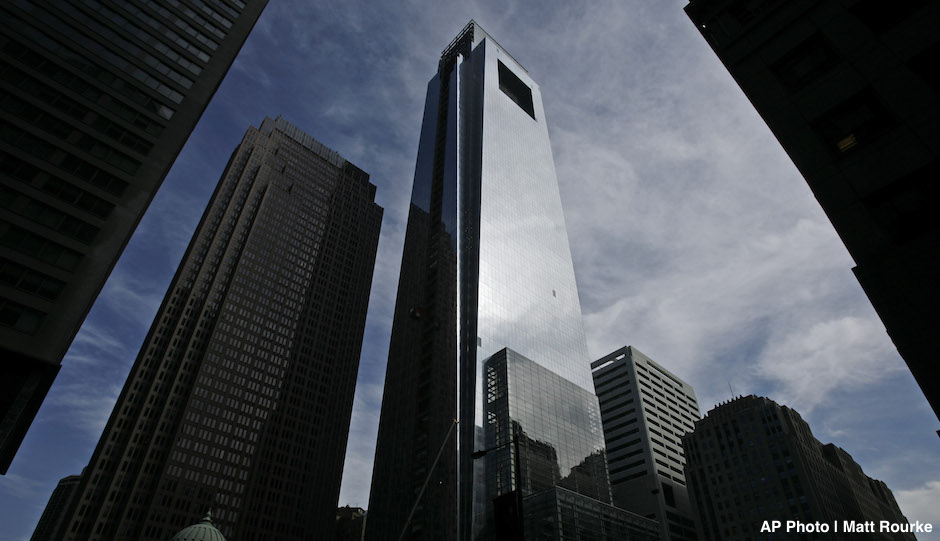Stop Mega Comcast Coalition Forms to, Uh, Stop Comcast

Photo | AP, Matt Rourke
Opposition to the proposed Comcast-Time Warner merger has been in no short supply. But that dissent seems to be coalescing a bit with the formation yesterday of the Stop Mega Comcast coalition, which pools the voices of several organizations that have previously expressed concerns about the union of the country’s two biggest cable outfits.
The group, which includes Dish Network, Glenn Beck’s The Blaze, Writers Guild of America West, the Rural Broadband Association, the Future of Music Coalition, the Sports Fan Coalition and Public Knowledge, among others, has come together to encourage the Department of Justice and the Federal Communications Commission to reject the merger.
In announcing the effort, the group listed familiar concerns about the merger, including the fact that the combined company would control nearly 50% of the broadband service in the U.S. — although Comcast maintains the figure is 35%.
The group’s complaints can be found in its manifesto, which concludes rather bluntly:
Mega Comcast’s concentrated market power runs counter to well established antitrust law and is plainly counter to the public interest. These facts, along with Comcast’s long history of abusing its power and disregarding its legal obligations, provide ample grounds for the DOJ and the FCC to reject the deal. It is not a close call.
The DOJ and FCC should reject the Comcast-Time Warner Cable merger.
Comcast, for its part, seems unfazed:
“Hundreds of community organizations, programmers, lawmakers and diversity groups have praised the pro-consumer benefits of this transaction. It is no secret that some companies that want billions of dollars in higher fees for consumers are paying lobbying firms to organize against this transaction,” said Sena Fitzmaurice, Comcast’s VP of government communications.
“This minority of self-interested opponents has used the same tactics in our past deals, and their claims were not found to be credible by the expert agencies. We believe the same will be true here.”
The FCC announced yesterday that it is restarting its 180-day clock for review of that deal as well as the AT&T-DirecTV deal. According to the New York Times, some industry execs think a decision on the deal could come by March.


